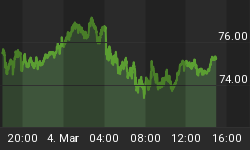Last week, the U.S. government took the unprecedented step of effectively nationalizing mortgage giants Fannie Mae and Freddie Mac. Together, the two companies hold or guarantee some $5.2 trillion, or about half, of all American residential mortgages. A substantial portion of this debt is tilting toward default. Given the size of the numbers, American tax payers should be very concerned.
In many ways Fannie and Freddie were flawed at birth. They were in effect the favored child, encouraged to play recklessly with their generous allowance. Endowed with an 'implied' government guarantee, they were given favored access to cheap financing. Furthermore, they were, as their massive lobbying payments confirm, 'close' to government. Some would say they were too close.
It was rightly felt in Washington that a collapse of either company would drag the whole mortgage market down with them, doing untold economic and political damage. The truth is sometimes unpalatable. To keep the wolves at bay, the government elected nationalization, the cornerstone of communism and socialism. The policy represents a major change for the American economy. Nationalization threatens the fundamental concept of free market capitalism upon which America rose to become the dominant financial powerhouse and economic engine of the world.
A government rooted in free enterprise clearly has no natural or ideological wish to grasp economic power through nationalization. Indeed, the opposite is the case. However, as a child of twentieth century politicians, nationalization is sold as a cure-all when no economic free market alternative presents itself.
When used as a fallback in times of economic austerity, nationalization has a weak record of success. Initially, it sometimes appears to work. But, in the long term, it destroys the vital element of competition. This, in turn, creates often catastrophic distortions within the free market and failure results. Government officials have little capacity for business and very shallow knowledge of individual industries. Most importantly, they have political agendas that transcend those of commerce. Their decisions are too often politically motivated and commercially flawed.
History shows vividly that nationalization usually results in commercial failure, financial loss and industrial decay. As rot sets in, the government usually seeks to protect its nationalized industries; by according them monopoly status and so destroying yet further free enterprise. Both the former Soviet Union and large parts of post-war Europe experienced widespread nationalization. The trend led to greatly reduced living standards. It took leadership of outstanding quality, such as under Prime Minister Thatcher, to break nationalization by exposing it to the competitive fire of free market capitalism.
After such history, why would the United States Government entertain the idea of nationalizing the two key lenders in the mortgage markets? In short, the alternative was that scary.
More than just about any industry, housing is at the core of the U.S. consumer economy. In 2006, American residential housing was valued, according to the Fed, at some $24 trillion. This was some 1.7 times the annual Gross Domestic Product (GDP) of the entire United States economy and 2.4 times the U.S. Treasury's debt.
Economically, housing is also a most important 'multiplier' industry involving the products and financial health of many sub-industries such as appliances, building products and utilities. It is therefore extremely important to the voter and politicians know this. Any further collapse in housing could lead all too easily to a breakdown of the banking system doing untold further economic damage.
However, the housing industry is not alone in needing financial rescue. Airlines, automakers, banks and insurance companies will likely follow the mortgage lenders in applying to the government for aid. What then? Where will nationalization stop? If it spreads, what will be left of free-enterprise America?
The long-term implication and price of nationalization in America likely will be reduced efficiency leading to increased apathy. A government takeover of Fannie Mae and Freddie Mac will not solve the mortgage mess. A free enterprise correction would be painful, but far more healthy.
Milton Friedman is quoted as having said: "The government solution to a problem is usually as bad as the problem." In the case of nationalization, the government solution will only prolong the problem.
For a more in depth analysis of our financial problems and the inherent dangers they pose for the U.S. economy and U.S. dollar denominated investments, read Peter Schiff's book "Crash Proof: How to Profit from the Coming Economic Collapse." Click here to order a copy today.
More importantly, don't wait for reality to set in. Protect your wealth and preserve your purchasing power before it's too late. Discover the best way to buy gold at www.goldyoucanfold.com, download our free research report on the powerful case for investing in foreign equities available at www.researchreportone.com, and subscribe to our free, on-line investment newsletter at http://www.europac.net/newsletter/newsletter.asp.















